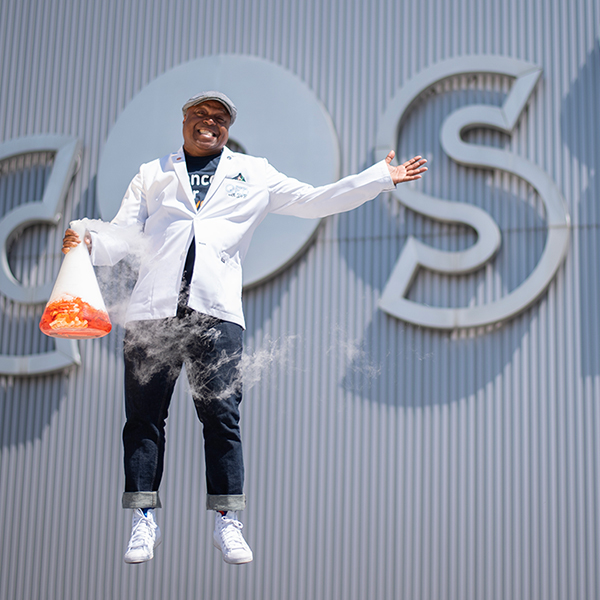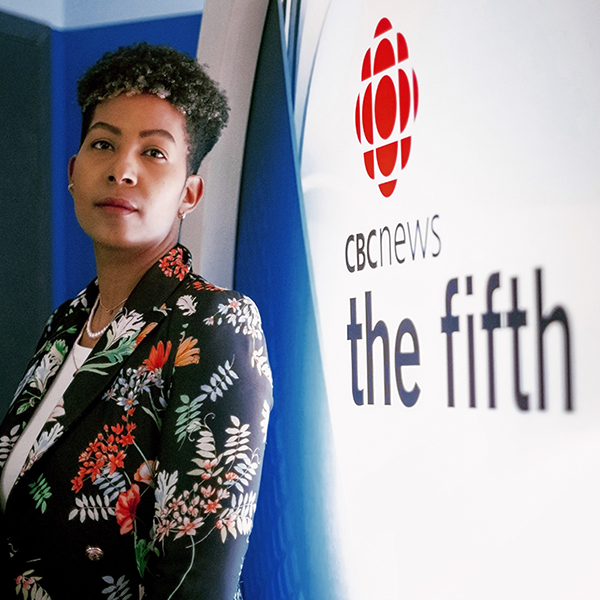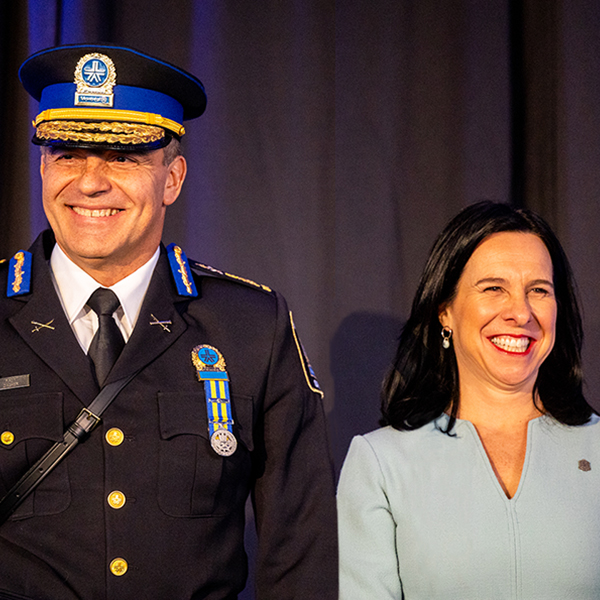Montreal Pride’s new executive director Simon Gamache is stepping into the role during a period of transition.
Since the start of the pandemic, Pride festivities around the world have either fallen silent or, in the case of Montreal Pride, largely migrated online with hybrid programming. Montreal’s 2SLGBTQI+ communities, many of them involved in the arts, have bared much of the financial brunt of venues, restaurants and bars being shuttered for public safety.
Gamache, BMus’02, MMus’05, has worked in the arts sector for over 15 years for the likes of I Musici de Montréal and the Banff Centre for Arts and Creativity, first as a musician then in management roles. He understands the plight of artists, and knows the pivotal role Montreal Pride can play in helping get so many talented people back on their feet after a difficult time.
“Right now, I’m in the process of meeting all the 2SLGBTQI+ communities and organizations I can, because there are many. We’re having very rich conversations,” Gamache says. “It’s a very fragile ecosystem right now, and many important parts of our community have collapsed already. There’s a lot of picking up the pieces.”
Gamache felt now was a good time to make the shift from music to equity, diversity and inclusion work.
“It’s something that’s become really important to me in my past decade of work,” he explains. “Whether it’s having more diverse teams or offices or supporting BIPOC artists. When you’re an artist, you’re often just trying to find money to survive and everything else comes secondary. I wanted to make diversity and inclusion my primary thing.”
As program manager at the Banff Centre, Gamache felt a duty to support emerging artists, and he plans on carrying that mentality over to Montreal Pride. The festival, held every August, remains the key component, and now more than ever booking and fairly remunerating acts and technicians alike is a way to bring life back to a festival that hasn’t been able to go all-out the last two editions.
Although still new to the role, there are also long-term questions as to how Montreal Pride can be a consistent supporter of the arts sector. Year-round programming with various partner organizations is an idea that’s been floated, says Gamache.
“When an artist performs one night, keep in mind they’ve probably spent hundreds of hours preparing for that gig without getting paid,” he said. Montreal Pride is a relatively new entity, having started in 2007, and as such is in a unique position to continue growing, especially as an emerging leader among Pride festivals in the francophone world. It’s small compared to New York or San Francisco, but Montreal Pride still has considerable resources.
The success of the hybrid edition of their festival last year also serves as a compelling case for taking on a greater role in online content creation. To Gamache, that could mean producing online concerts or even podcasts.
“It’s all to be determined, but we believe in our communities and having them be heard by as many people as possible,” he says. “Developing content, and not just being heard around August when it’s festival time, is important.”
Speaking of August, though, there is a comeback festival to plan. The next Montreal Pride is set for August 8-14, 2022, and it’s expected to be the first one since 2019 to be a full experience without social distancing or reduced capacity venues. It’s going to be a momentous occasion to have everyone together again, and Montreal Pride emphasizes intersectionality, providing space to BIPOC, transgendered and a number of other communities to feel at home.
Gamache says his time at McGill prepared him for a life in music beyond instruments and orchestras. As his career progressed, he was able to slide into other creative roles in the field, including being a professional manager and executive director, without skipping a beat.
“I didn’t necessarily think about it when I was there, but since graduating I’ve had the chance to work with many McGill music students, and what has always separated them from others is they’re encouraged to have rich lives outside of their studies. They get exposed to different things,” Gamache says.
“And I was like that, too. I used to walk into random lectures in the architecture building and sit in the back. I think I wanted to be an architect when I was five, but then music happened.”


